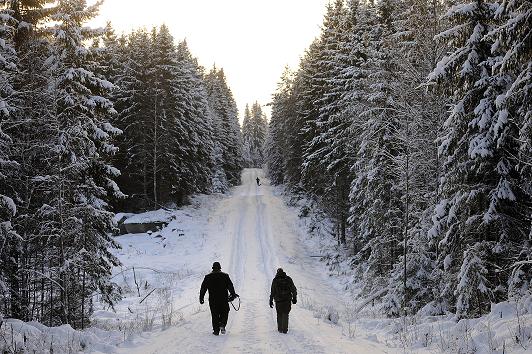What Sweden can learn from India’s wildlife policies
 Swedish researchers are travelling to India to take part in a conference on how humans and large predators can live side by side.
Swedish researchers are travelling to India to take part in a conference on how humans and large predators can live side by side.
Sweden is home to about 200 wolves while India has around ten times that many tigers. In both countries there is conflict over the damage that these large predators can cause to livestock, and in both cases environmentalists would like to see more of the animals roaming the countryside.
Camilia Sandström is a political scientist and researcher at Umeå University in Sweden’s North, as well as at the Swedish University of Agricultural Sciences. She says that in Sweden it’s been chosen not to create separate zones for humans and animals, while in India the tigers are kept to national parks – where people are not allowed to live.
In Sweden if a wolf kills a lamb or a calf the farmer can expect to be paid compensation, and they can get roughly the same price as they would by selling the animal for meat. It is this kind of system that Sweden has developed, that other countries are hoping to learn from.
In addition this Nordic nation has made efforts to engage people in projects to take care of wild predators.
In India, tourism is a major industry for people living near the tigers’ national parks, as hundreds of thousands flock to see the endangered animals. But back in August the Indian federal government banned all access into the parks, motivated by environmentalists who say that intense tourism was harming the tigers.
Researcher Camilla Sandström says that it is in the areas around the national parks that there is the most conflict. British newspaper The Guardian reports that after the tourism ban angry villagers living near the tiger park threatened to take up hunting, adding that 923 tigers were illegally shot in India between 1994 and 2010, and that the banned trade in tiger body parts continues to thrive.
In Sweden as recently as Monday Swedish Radio reported suspicions that wolves had been shot illegally near Kynnefjäll, in the mountains north of Gothenburg.
For more stories from Radio Sweden, click here



